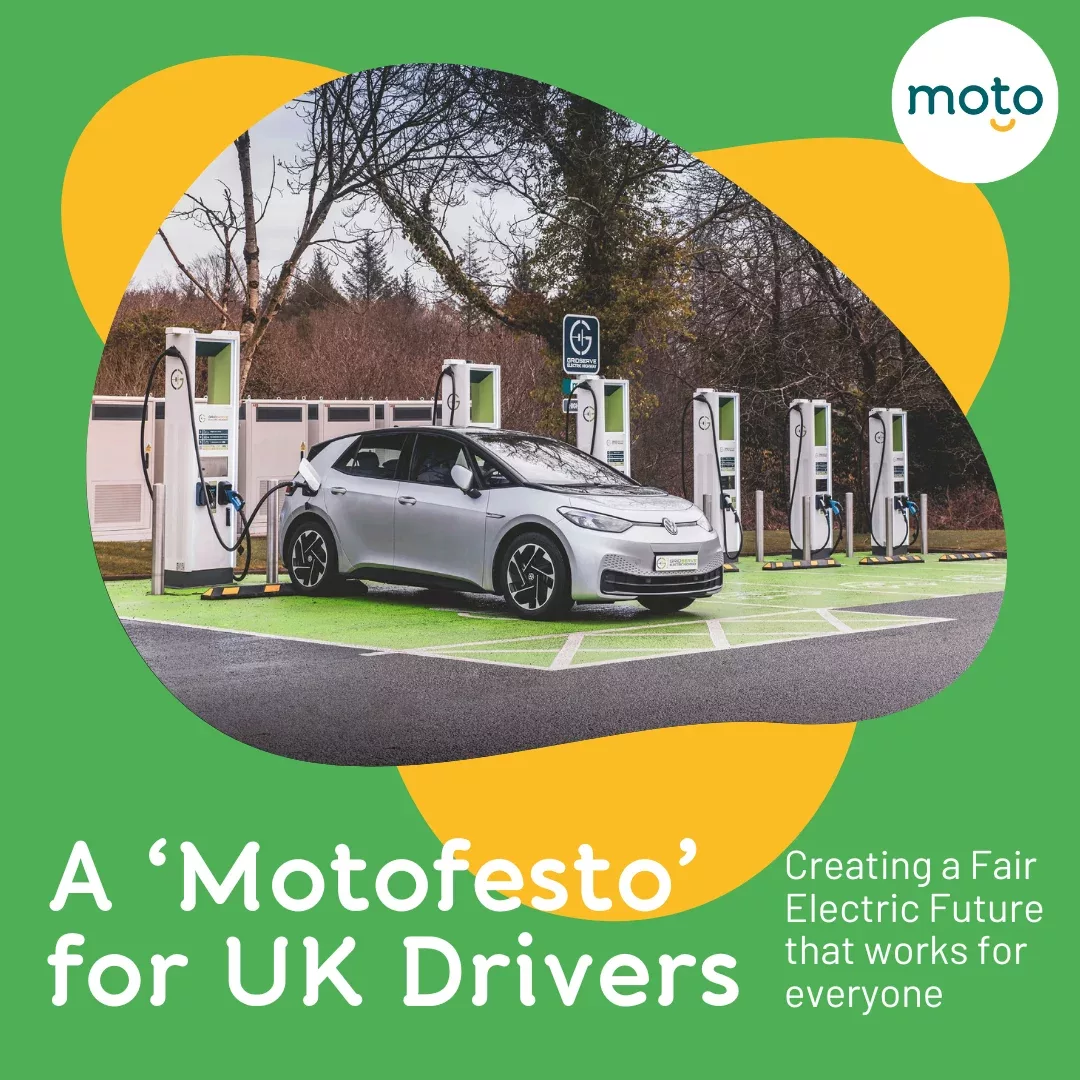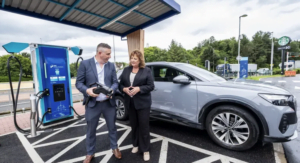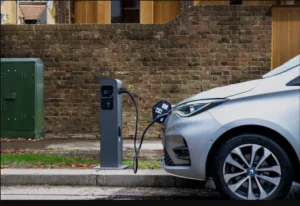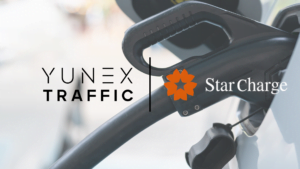The UK’s largest motorway services operator Moto Hospitality is predicting nearly 400,000 electric vehicle drivers will be on the road over the weekend, with “Surge Saturday” being the busiest day for EV charging on UK roads ever.
It says significant increases in EV ownership in recent years, combined with one of the busiest holiday getaway weekends of the year, is set to put the UK’s network of EV charging hubs to the test, with queues widely expected at sites located on major routes to holiday destinations including the South West, Wales, Cumbria, Scotland and the North East.
Moto is expecting to deliver a record one million EV kilometres in charging output across its network this Saturday alone.
Despite an industry leading roll out of Ultra Rapid EV chargers on the UK motorways Moto says it still believes queues at some locations are unfortunately unavoidable. In response it will be working with its partners at Tesla and GRIDSERVE to provide marshals at key sites throughout the weekend and into the school summer holidays. Marshals will help to manage the flow of EV traffic, identify available chargers and bays, and ensure the safety of EV drivers and nearby pedestrians, as well as providing reassurance and a visual presence to coordinate motorists during busy times.
Moto CEO Ken McMeikan is however warning today that marshalling won’t be a long-term solution to queues and that ultimately much more power is required for the charging capacity which is needed in order to service demand. Speaking ahead of this weekend, he said: “This weekend’s queues will unfortunately be inevitable if more action isn’t taken to support charging providers’ roll-out of Ultra-Rapid EV charging. The UK needs to decarbonise, and the switch to EV is one of the most important elements of that. However, as charging providers, time and time again we‘re being confronted by significant barriers in our ambition to make that switch easier for motorists.”
His comments come as Moto launches its ‘Motofesto’, which lifts the lid on some of the major barriers that industry faces in addressing the electric charging supply gap. In particular, it points to the challenges that Moto and others are facing when it comes to securing power and the necessary National Grid connections.
McMeikan continued: “Upscaling and maintaining an Ultra-Rapid charging network for our strategic road network alone would need grid capacity equivalent to the average annual electricity usage of nearly three quarters of a million homes by 2030 – more than three times as many homes as there are in Cumbria. It’s a huge power challenge that is underestimated and underappreciated by Government. We can secure and install the chargers relatively easily, but delivering power to those chargers is becoming a major issue.”
Moto claims that at the current rate of development, industry will not be able to secure access to the levels of power output needed without changes to the way the Government, DNOs, charging providers and others collaborate to deliver charging infrastructure.
Amongst other recommendations, the Motofesto calls on the Government to designate public EV infrastructure as ‘nationally significant’ and speed up planning consents for network connections, or risk having UK motorists being forced to queue for hours at a time in order to charge their car at a public charging hub.
The Motofesto includes the following expectations that Moto has for Government and other organisations involved in the UK’s roll-out of public EV charging infrastructure:
- Identify EV infrastructure development as ‘nationally significant’ and speed up planning consents for network connections
- Create further EV installation targets for motorways and A-roads that currently oblige landlords, motorway service operators and local authorities to deliver and meet 2030 charging demands together (currently, the Government’s targets only apply to the motorway service operators through to the end of 2023 and don’t create incentive for other organisations involved to support)
- To tackle prohibitively expensive grid connections, accelerate immediate access to the £950m rapid charging fund which was originally announced in 2020
- Dramatically increase the UK’s sustainable power to keep EV drivers moving on net zero carbon energy
- Introduce laws to help companies who install critical EV infrastructure in negotiations with their landlords
- Reinstate the Plug-in Car Grant for more affordable new models and extend it to used EV cars
- Scrap the 20% rate of VAT on public chargers, or bring it into line with the home charging rate at 5%
- Put the brakes on the planned introduction of Vehicle Duty for electric cars
- Launch a sustained publicity campaign on the benefits and practicalities of EV ownership
(Picture – Moto)





















